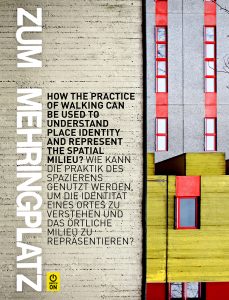Open Letter from the Scientific Community
We receive from our friends in Warsaw and publish this important call for supporting tenants struggles in the Praga Neighbourhood of Warsaw. You can write to wsl.brzeskiej@gmail.com to express your support and sign the letter.
Here a 5-minute long film (with English and German subtitles) explaining the predicament as well as showing the struggle:
We, scientists from around the world, are outraged by the effects of Warsaw’s housing policy and specific state regulations that have for years been condemning working class people to greater poverty. Access to healthy and warm housing cannot be a privilege. Public tenants from Praga and other districts of Warsaw, engaged in organized struggle against housing conditions characterized by cold, damp and moldy apartments, is a picture that will remain in our memory for a long time after our research visits to the Polish capital.
Currently, city-wide central heating systems supply the cheapest heat to Polish houses. The costs of electric heating are at least three times higher [1], while the cost of electricity in Poland is among the most expensive in Europe, in relation to purchasing power [2]. In the capital city, Warsaw, the district heating network is well-developed. Yet the vast majority of the city’s rent-controlled public housing (more than two thirds of municipal buildings[3]) lacks central heating, forcing tenants to heat their homes using electricity, which over the years has become the most expensive method available. In this way, cheap housing becomes a mere catchphrase.
The consequences of this situation are deplorable. Today, most of the houses managed by one of the wealthiest cities in Central Europe should be considered Sick Buildings: cold, damp, and contaminated with toxic fungi. Housing conditions of this sort seriously deteriorate the health of subsequent generations of Warsaw residents. As a result of the neoliberal turn in politics, over the past decades tens of thousands of working and retired people have been forced to live in substandard housing where the costs of heating far surpass their incomes. Tenants assigned to sick buildings often work two jobs and are forced to make savings on their own health. Fighting for survival, they often fall into debt with the city government or private banks. We consider these debts forced and unlawful.
Social assistance mechanisms only marginally alleviate the contradictions of housing policies. Monthly subsidies to the electricity bill amount to the price of a one-day ticket for public transportation [4]. These and other housing subsidies are only available to tenants who regularly pay they rent and are intended to cover a minute portion of the drastic charges. Debt alleviation programs require that tenants officially recognize the debt they were forced into and are based, among others, on free labor [5]. This proves an impossibility for many already overworked tenants, especially women, who after their wage job usually also do free unpaid work at home.
At the same time, the expansion of exclusive real-estate projects is visible in Praga and other parts of Warsaw. Commercial buildings are constructed on the sites of demolished public tenement homes and former factories that were devastated before finally being bulldozed. The rapid development of these parts of Warsaw is taking place at the expense of working class people who are being deprived of the possibility of healthy living. Pushing thousands of people out of their homes by forcing them into debt or deteriorated health conditions through sick buildings is a classic means of landgrabbing.
In this dramatic situation, most rational in our view are the demands of the Warsaw Tenants’ Association regarding sub-standard public housing. Warsaw authorities must recognize that they are facing a great social crisis and implement far-reaching remedies. The city government should immediately connect public tenement buildings to the central heating system. The authorites’ response to fuel poverty has thus far been too slow. According to official data, the number of public tenement buildings without central heating decreased by a mere 4.1 percent (from 72.8 to 68.7 percent [6]) in 2012-2017 – that is less than 1 percent a year. Warsaw authorities are far more active in reducing the city’s public housing stock. In 2007-2015, city authorities privatized or demolished six times more apartments than they fitted with central heating in that same period [7]. This neoliberal trend follows the worst antisocial examples found in Europe and needs to be reversed. As proved by many independent analyses, increasing the ratio of healthy rent-controlled public housing is the best way to fight speculation and housing hunger.
Artificial and forced debt that is the clear result of soaring electricity charges should simply be cancelled. Tenants cannot be forced to pay with their health and modest means for the city’s sick buildings or years of negligence associated with its antisocial housing policy. Until the abolition of the high costs of heating, rents should not be collected from tenants living in electric-heated apartments. In the meantime, the government, which is responsible for setting high electricity prices, should propose compensation payments to tenants forced to heat their homes with electricity.
Finally, we call our own community of scientists, urban planners, economists, architects, microbiologists, mycologists, physicians, etc. to directly support tenant organizations in the struggle against sick buildings, the destruction of social assets and the degradation of human health for short-sighted private profits.
Together, let us counter the grabbing of land and homes, and support tenants’ self-help initiatives. In solidarity,

